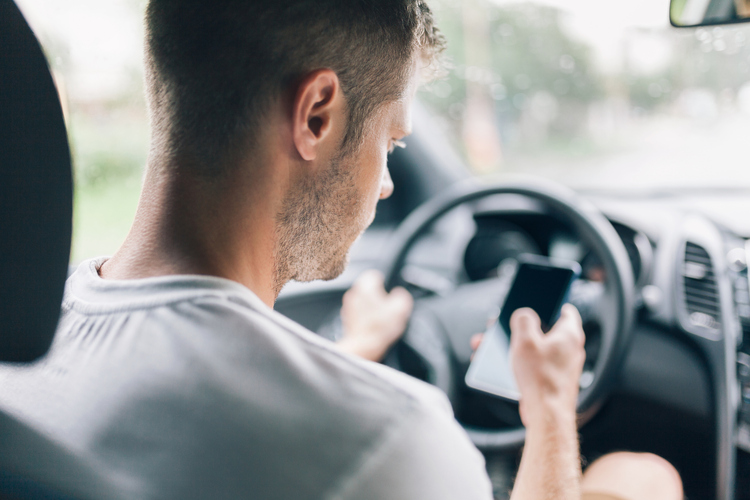
If you’re using global positioning systems (GPS) to navigate the route to your destination, you may still be held liable for an accident. Using GPS while driving is still considered distracted driving in Missouri, as paying more attention to your virtual map increases the risk of getting into a wreck.
Victims in car accidents caused by GPS may have solid grounds to demand compensation from the at-fault driver. However, your lawyer must still establish the other driver’s negligence.
Have you been injured in a collision in which the use of a satellite navigation system was a factor? Please contact our Independence car accident lawyers today for a free consultation.

Types of Distracted Driving
Although GPS instructions can often make it safer and easier to reach a new destination safely, they’re still distracting to drivers. In fact, GPS technology involves all three main types of distractions: visual, manual, and cognitive.
Visual distractions
A visual distraction is anything that takes your eyes off the road and traffic, including looking at your phone, examining your Waze or Google Maps, checking out billboards, and even looking at road signs.
Manual distractions
Manual distractions are those that require you to remove your hands from the steering wheel. These include eating and drinking, applying makeup, and programming your GPS.
Cognitive distractions
Cognitive distractions remove your concentration from the road and the flow of traffic. These could be anything from having an argument with a passenger to daydreaming or thinking about the directions that your navigation system is dictating. Anything that causes you to lose mental focus from driving can be a cognitive distraction.
Most GPS systems require manual programming, and many of them have pop-up notifications, like a speed trap, an object in the road, or a suggestion for a better route that may require manually tapping to dismiss. And, GPS programs create cognitive distractions, as the driver is processing the directions and evaluating how close they are to their destination. Finally, GPS-related visual distractions include looking for the right road or exit and paying more attention to your tiny digital map than the other cars.
Proving liability in accidents where GPS devices are a factor
Distracted driving is considered negligence in many Missouri car accident claims. But, as in any crash claim, you must prove that the other driver was negligent and that their negligence caused the crash.
Witness testimony can be a valuable piece of evidence in establishing that the GPS system was distracting the driver. Your attorney may have to subpoena the passengers in the other car to compel their testimony, but if they state that the driver was messing with their GPS rather than paying attention to the road, then their testimony can establish the driver’s actions.
Subpoenaing the driver’s phone records can also prove what they were doing in the moments leading up to the crash. Simply noting that the GPS was running in the background may not be enough. However, if the phone’s data shows that the driver was engaging with the app, like manually clearing notifications or re-routing their trip, then this may demonstrate to a jury that they were distracted.
Legal help securing compensation after a GPS-caused collision
Have you been injured in a car accident by a distracted driver? You could be entitled to a large settlement. Contact Langdon & Emison at (805) 541-0300 for a free consultation with a personal injury lawyer. Our firm has the resources to subpoena all necessary evidence and a strong track record of successfully settling claims involving GPS use.

